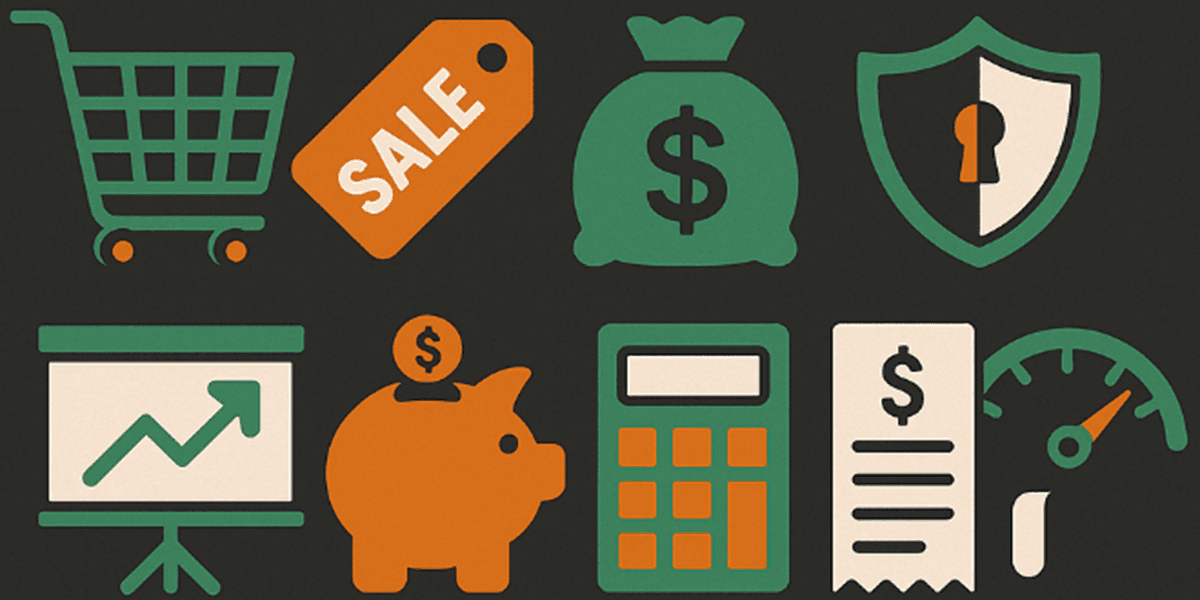🛒 Black Friday Finance Series: “Shop Smart, Stay Secure” 💻

Introduction Every year, millions of Americans line up before dawn or scroll feverishly online for one reason — Black Friday. It’s the shopping event of the year, filled with irresistible deals, flashing countdowns, and the thrill of “beating the crowd.” But while your cart may fill fast, so can your credit card balance. Overspending during Black Friday can undo months of progress toward your financial goals, especially when interest, Buy Now Pay Later plans, and emotional purchases pile up.
This year, instead of falling into the frenzy, make Black Friday your moment to shop smarter — and strengthen your financial habits at the same time.
1. The Psychology of Black Friday Spending Retailers use powerful psychological tactics to get us to buy more — scarcity (“only 3 left!”), urgency (“ends in 2 hours!”), and emotion (“treat yourself!”). These cues trigger impulsive decisions, often leaving buyers with regret once the excitement fades. Recognizing these tricks is the first step to resisting them.
Before you hit “Add to Cart,” ask yourself three quick questions:
Would I still buy this if it weren’t on sale?
Does this purchase align with my financial priorities?
Will I still value it a month from now?
That small pause can prevent a major financial headache later.
2. Build a Realistic Black Friday Budget Start by reviewing your current budget or bank statements. How much can you afford to spend this month after covering essentials and savings goals? Whatever number you land on, cap your Black Friday spending at that amount — and stick to it.
Divide your total into categories:
Gifts for family and friends
Household upgrades
Personal splurges
Miscellaneous costs (shipping, taxes, travel)
Apps like Mint, Rocket Money, or YNAB can help you track spending in real time. Consider using a prepaid debit card to set hard limits. Once the funds are gone, you’re done shopping.
3. Credit Cards: Rewards vs. Risk Credit cards can work in your favor when used wisely. Cashback and rewards programs can stretch your dollars further — especially if you pay your balance in full each month. Some cards even offer price protection or extended warranties, which are great for electronics and appliances.
However, the benefits disappear if you carry debt into the new year. With average APRs now over 22%, that “doorbuster” deal can quickly cost more than its original price.
👉 Smart tip: Only use your card if you can pay the balance off completely by your next due date.
4. Beware of “Buy Now, Pay Later” Temptation BNPL services like Klarna, Afterpay, and Affirm are now common at checkout. They promise interest-free payments, but they can also disguise overspending. Multiple BNPL plans can add up fast, making it difficult to keep track of due dates. Missed payments may incur fees or even hurt your credit score if reported to bureaus.
If you use BNPL, treat it like any other debt — track it, schedule payments, and ensure you can repay in full.
5. Keep Emotions in Check Emotional spending is powerful, especially around the holidays. Buying gifts can feel generous; buying for yourself can feel like a reward. But true generosity comes from staying financially secure. Instead of impulse buys, consider experiences — a family outing or meaningful, low-cost gifts like handmade items.
Conclusion Black Friday can either empower or derail your finances. With a plan, awareness, and discipline, you can enjoy the thrill of the hunt without sabotaging your budget. Remember: the best deal isn’t the biggest discount — it’s the purchase that fits comfortably into your financial goals.